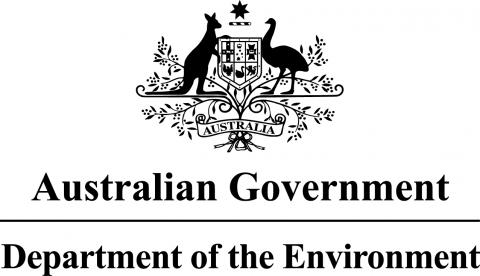Resources
Science Alert
23 August 2013
Endangered green and leatherback sea turtles are swallowing plastic at twice the rate they did 25 years ago, according to a recent study published in the journal Conservation International by researchers from the University of Queensland (UQ) and CSIRO.
After analysing global research data from the past 25 years, the research team – including Denise Hardesty and Chris Wilcox from CSIRO's Wealth from Oceans Flagship – found that these two turtle species, in particular, appear to be eating more plastic today than ever before. Read more
The University of Queensland
09 September 2013
Manta rays are hard to miss —big and black, stretching up to seven metres wide, but scientists are concerned about the survival of the world's largest ray.
The University of Queensland's Project Manta is joining forces with Western Australia's Murdoch University scientists and industry partners Austral Fisheries and the TG Kailis Marine Conservation Fund to establish “Project Manta – WA”. Read more
ABC News
08 May 2013
Professor Helene Marsh from James Cook University is among 200 delegates attending a reef conference this week in Cairns in far north Queensland.
She is calling for stronger action to protect the reef.
"We need to be much more strategic and more careful about how we use the land," she said. Read more

Natural Environment Research Council
13 August 2013
Urgent cuts in carbon emissions are needed if Caribbean coral reefs are to survive past the end of the century, scientists have warned.
The Morning Bulletin
05 June 2013
MORE than 100 Australian scientists have called on the Queensland and Australian Governments to hit the pause button on any new port developments, while a massive national assessment of all the risks to the Great Barrier Reef is completed.
Signatory to an open letter sent to both governments, University of Queensland Professor Hugh Possingham said a massive, independent, peer-reviewed study of all threats to the reef needed to be undertaken. Read more

News.com.au
22 August 2013
SCIENTISTS fear a mosquito that carries deadly viruses and breeds rapidly could soon invade the Australian mainland after the insect was found in the Torres Strait.
A University of Queensland study has found established populations of the Asian tiger mosquito on the islands of Waiben (Thursday) and Ngurupia (Horn). Read more

ABC News
02 December 2013
Researchers on the Great Barrier Reef off Queensland are freezing coral sperm to stop some of the animal species from becoming extinct.
Over the past 30 years, nearly half the coral cover on the Great Barrier Reef has disappeared and researchers are concerned some of the animal species could soon be wiped out. Read more

Brisbane Times
05 June 2013
Australia's leading marine scientists have demanded governments take better care of the Great Barrier Reef just weeks from a key United Nations meeting considering the impacts of proposed coal and gas development on the world heritage site.
In a joint statement, the scientists urge governments to contain several proposed new ports along the reef's coast associated coal mining and gas projects to existing industrial areas. Read more

Science World Report
21 August 2013
When most people think of coral, they think of the beautiful tropical reefs that thrive in the Caribbean and along Australia. These corals are seen as stationary--immovable and part of the landscape. Yet corals are animals and, like many other seafaring creatures, are mobile when they're younger. Now, scientists have used computer simulations to reveal the epic, ocean-spanning journeys travelled by tiny coral larvae through the world's seas.
News.com.au
05 June 2013
SCIENTISTS warn big business is ruining the Great Barrier Reef, saying more protection measures must be introduced to halt the reef's dramatic decline.
More than 150 scientists have joined forces to warn of the industrialisation of the reef ahead of a UNESCO World Heritage meeting in 12 days.
Led by University of Queensland's Professor Hugh Possingham, they say science is being ignored as big business develops reef waters. Read more






